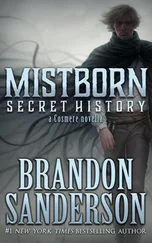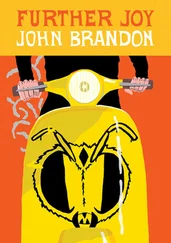Mr. Hibma threw back a shot of bourbon, brushed his teeth, and tore down the empty roads that led to the county offices and the jail. This was the change. Mr. Hibma saw it. He didn’t have to love the kiss-asses. He had to love who he loved. He could be his own kind of teacher, one who took an interest in the Tobys of the world. Mr. Hibma didn’t have to give Toby all those detentions. He respected the boy. Mr. Hibma had been misguided in trying to take the drastic alteration of his life into his own hands. As usual, the world was supplying the change. As usual, Mr. Hibma was a character, not the author. And thank God. Mr. Hibma wasn’t up to being the author. He didn’t know how to save himself. Never was he less skilled, more doltish, than when he tried to figure and plot his own life.
When he arrived at the station, he drove around the building, deciding where to enter. There were media vans and he didn’t want to be near them. He found a side entrance that seemed meant for deliveries, then collected every bit of identification he could out of his glove box and wallet — documentation proving his residence and place of employment and the status of his automobile insurance, credit cards and a valid driver’s license. He had a social security card, a punch card for a smoothie shop.
Mr. Hibma went and knocked on the door until someone answered. He asked for the guy’s supervisor, saying he had information regarding Toby McNurse, and was taken to a small room with speckled tile on the floor where he waited for almost an hour. He decided, after much consideration, to leave the room, and he soon found the infirmary, where a nurse informed him that Toby had undergone his tests and was now resting. The nurse seemed a sympathetic person, so Mr. Hibma told her why he was there, that he wanted to claim Toby, that he was one of Toby’s teachers at school and that the boy was fond of him and that he was meant to help this kid and probably not meant for a damn thing else.
The nurse sat Mr. Hibma down and gave him some coffee and again Mr. Hibma waited for an hour. He felt like he was in trouble. His hair felt greasy. He was on the verge of tears. He realized that he was very tired and agitated and that when he finally got to talk to someone with pull he was going to come across as raving. He drank more coffee. He could sit for ten more minutes, he told himself, and then he would have to go explore another part of the building. Mr. Hibma wondered if he was on camera. He imagined that by now the police social workers had confirmed that Toby had no family. They were doing a background check on Mr. Hibma. There were lawyers back there. The chief. Mr. Hibma needed a bathroom. He needed to piss and splash water on his face. Mr. Hibma thought back to the only other time he’d been in a jail. In college he’d missed a court date for underage drinking and cops had come to his apartment at six in the morning and pounded on his door. They had sat the eighteen-year-old Mr. Hibma in the back of a long van and then proceeded to pick up every deadbeat dad in town. It was something they did once a month. For hours upon hours Mr. Hibma had watched lawyers dragged from offices, mechanics led out of garages, old leather-skinned black guys called up from fishing holes.
The door to Mr. Hibma’s little room swung open, causing him to spill coffee on his leg. A large, relaxed cop entered, not wearing a uniform but just a polo shirt with a badge embroidered on it, followed by Mrs. Conner. Mr. Hibma was dumbstruck. He did all he could, which was to sit up with a formal bearing and wait to be spoken to. Mrs. Conner smiled solemnly at Mr. Hibma, as if proud of him. The cop started talking. He was Mrs. Conner’s husband, Sergeant Conner. He’d been retired for years, but still had influence around the station. Mr. Hibma had pictured Mrs. Conner’s husband wearing a polo shirt and here he was, wearing a polo shirt. Toby was going to be released to Mr. Hibma on a trial basis, for thirty days. Thirty days was the minimum. If Mr. Hibma couldn’t make a thirty-day commitment, he should speak up now. Sergeant Conner went on, Mrs. Conner beaming at his side. Mrs. Conner considered Toby a problem child, Mr. Hibma gathered, and believed Mr. Hibma was doing a saintly deed taking him in. Mrs. Conner had put in a good word for Mr. Hibma. She and her husband were pushing this through. It was just a matter of time and signatures. Her husband explained that Toby would be moved to the hospital for a short while, then would return to county custody for a week or so, until the hullabaloo died down. After all that was over, he would be Mr. Hibma’s temporary charge. Mr. Hibma had never seen Mrs. Conner out of school. Everything about her seemed exaggerated. Her hair was a vibrant red. Her teeth were big and straight. Her blouse was of some rough, stiff material and her perfume shrunk the room.
The next day, Mr. Hibma rose late. He got up from his couch starving and foraged in the kitchen. Crackers. They were stale but they’d work. Mr. Hibma chewed up half a tin of ginger candies. He made tea and drizzled honey in it and took it to the couch.
Mrs. Conner had come to his aid. Mr. Hibma’s campaign to befriend her had paid off. He was a friend of hers. Mrs. Conner was his buddy. His friendship with Mrs. Conner was cemented, while whatever he’d had going with Dale had ceased. The moment he’d gotten home from the police station he’d sent an e-mail off to Dale, to her website anyway, the first e-mail he’d sent in a very long time, telling her he wasn’t going through with his proposal, that he was shutting down the project. Mr. Hibma had not offered an explanation for his bailing out, had not told her that unlike her he now had something worthwhile to do with his life, had not revealed the fact that he was Shelby’s teacher and wasn’t really from Clermont. Dale had shot back a reply within five minutes saying she had never intended to come to Florida, that she’d been stringing Mr. Hibma along for fun, not that it had turned out to be much fun. He wasn’t capable of art, she’d told him. He didn’t have it in him. Did he honestly think, she asked, that she didn’t get crackpot proposals like his every other day? She knew Mr. Hibma’s type. He was a loser and his plans were the typically grandiose plans of a loser.
When the Registers returned home from the hospital, Shelby’s father began building a fence around their yard. He had a post-hole digger and a bunch of lumber delivered, and he pulled his table saw and some other tools out of the garage. The fence was eight feet high. Shelby’s father started right in front where the media hung out. The churchies offered to help with the fence. When Shelby’s father turned them down, he did so with a gruff dignity that Shelby admired.
He spoke to Shelby a lot in the afternoons, both of them drinking coffee, while Kaley napped. Shelby mostly listened. She liked coffee. She liked measuring the grounds and pouring in the water and dropping in the sugar lumps. She liked the saucers and the spoons and the tiny pitcher that held the cream. The aroma of the coffee and the sound of her father’s voice were things she looked forward to. Kaley gave Shelby and her father feelings they didn’t want. Her father longed to dive back into Kaley, but something kept him from doing so. It was hard for him to touch her, and he spent most of his time watching her from across the room. He needed to finish grieving the loss of her, even though she was back. It felt like Shelby and her father were expected to be celebrating, but that wasn’t the mood in the house. The mood was bewildered relief. They felt behind, out of the loop. Just as she had right after Kaley had gone missing, Shelby had the overpowering feeling that her life’s course was being charted by outside forces. She felt that her heart’s work would never be her own.
Читать дальше












